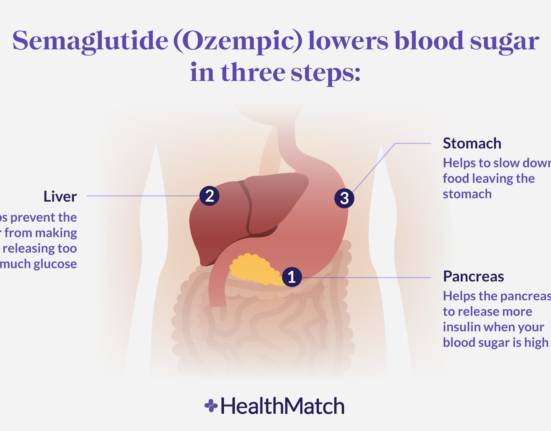The difference between private hospital near me and public hospitals isn’t always about money. Some public hospitals are known as centers of excellence. Many private hospitals are smaller and cheaper. Some have centers of excellence while others are smaller and cheaper. In this article, we’ll look at the benefits of private hospitals. We’ll also compare prices and sizes. Ultimately, you should choose a private hospital if you’re considering having surgery performed.
Public hospitals have centers of excellence
Centers of excellence are an important way for healthcare institutions to differentiate themselves from their competitors. They attract top-notch physicians, nurses, administrators, and technicians. They also improve outcomes, increase recruitment, and develop a culture of excellence and innovation. Centers of excellence also benefit financial institutions. Here’s how to establish and run a center of excellence. The benefits of this designation are clear:
The design of centers of excellence begins with the development of a comprehensive organizational chart that describes the roles and reporting relationships of all the employees. The chart must be in accordance with the tenets of the delivery model and must encompass the entire continuum of care. Another component of the organizational chart is shared governance mechanisms that promote collaboration across multiple disciplines. Oversight committees must be made up of the clinical and administrative ranks. Finally, the organization’s leadership structure must be determined.
Private hospitals are cheaper
While Malaysia private hospital tends to be pricier than public ones, many of them provide top-notch care. With a smaller staff, you can rely on the doctor who treats you. If you have a severe medical condition, private hospitals may be a better choice than public ones. However, you may want to choose a private hospital if you are unsure whether or not you can afford it. If you are unsure, consult with a health insurance provider to find out what your plan will cover.
While the cost difference is significant, it’s impossible to compare the quality of care. Public hospitals are known for their mediocre care. Private hospitals have an edge when it comes to comfort, cleanliness, and cutting-edge medical equipment. Private hospitals can afford to spend more on marketing and advertisements. They can advertise their new equipment, and provide a higher level of service than public hospitals. Still, the public hospitals are often the best choice for the uninsured.
Private hospitals are more comfortable
There are several reasons why patients prefer private hospitals. These include caring medical staff, improved quality of service, and confidence in billing. Private hospitals also provide extra services such as laundry facilities. Although patients cannot avail of medical insurance, they can still book appointments at private hospitals. It is best to contact the hospital in advance to find out payment options and availability of beds. Private hospitals usually have shorter waiting times than NHS hospitals. However, you should keep in mind that there are a few exceptions to this rule.
In public hospitals, patients are usually assigned to a different doctor with long waiting and administration times. The length of their appointments in private hospitals is longer, and they can communicate with their doctors in a more personalized way. Public hospitals operate at a minimum level of clinical protocols and do not offer more services, including ultrasound scans. While private hospitals have better medical facilities, you cannot expect to receive such personalized care in a public hospital.
Private hospitals are smaller in size
Public hospitals are generally larger than private hospitals. They are funded through local, state, and federal funds and cannot turn people away for lack of resources. Private hospitals are privately owned and have the right to turn people away, though they are still required to stabilize emergency patients. Private hospitals also tend to be smaller in size. But, public hospitals are much more likely to be located in urban centers, while private hospitals tend to be smaller in size.
A big advantage to a private hospital is that the care is more personalized. In private hospitals, nurses are generally only assigned a small number of patients to care for, and their wait time is shorter. Private hospitals also tend to be equipped with advanced medical technology. Their doctors have fewer patients to care for, which means that they can spend more time with each patient. Moreover, the doctor-to-patient ratio is generally high, and there are fewer people in a hospital.
Private hospitals are managed by an individual or a group of people
There are two main types of hospitals: public and private. Public hospitals are publicly owned by the government and are much more affordable than private hospitals. Patients with limited insurance or who cannot afford the higher fees often prefer public hospitals. Private hospitals, on the other hand, are often more luxurious and offer more high-end services. Although they often charge more, private hospitals tend to treat fewer patients at a time. People with higher incomes can afford private hospitals.
In a private hospital, the owner is responsible for managing finances and overseeing day-to-day operations. In addition to setting the budget, the owner also manages human resources, hospital equipment, and compliance. Although private hospitals are usually more expensive than public hospitals, they have gained in popularity due to their personalized care and reduced waiting times. Additionally, they are not subject to government regulation or oversight, which can lead to more health issues.
Private hospitals are more reputed
Many people have the misconception that private hospitals provide better quality of care than public hospitals. However, the truth is that there are several differences between the two types of hospitals. Private hospitals are generally smaller and better equipped to provide personalized care to patients. These hospitals are often associated with higher standards of care, more individualized care, and modern technology. These factors help make private hospitals more prestigious than public hospitals. They also tend to have smaller ratios of patients to doctors.
Conclusion
One of the biggest differences between public and private hospitals lies in the payment system. Private hospitals require a contribution from your health insurance plan, which can be a problem for those who do not have coverage. Uninsured people must dig deep into their pockets to pay for the hospital’s clinical tabs. The lack of government oversight makes it difficult to compare the cost of care and determine which hospital is better. Ultimately, the choice depends on your personal needs, and which hospital is more reputable for your particular medical care.








3 Comments